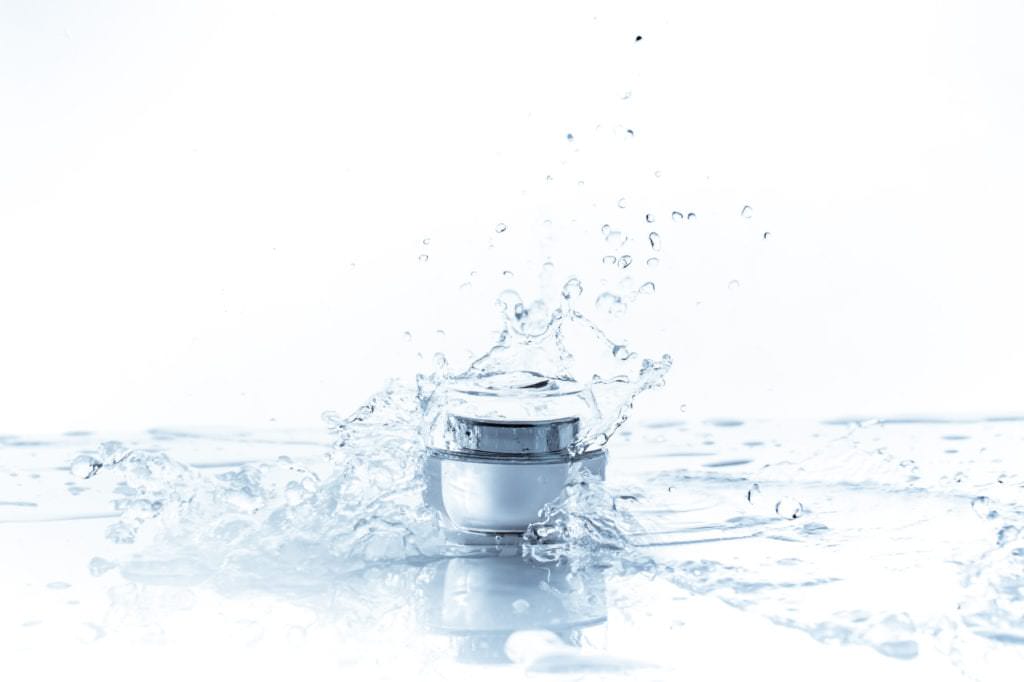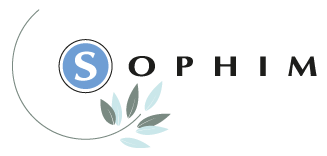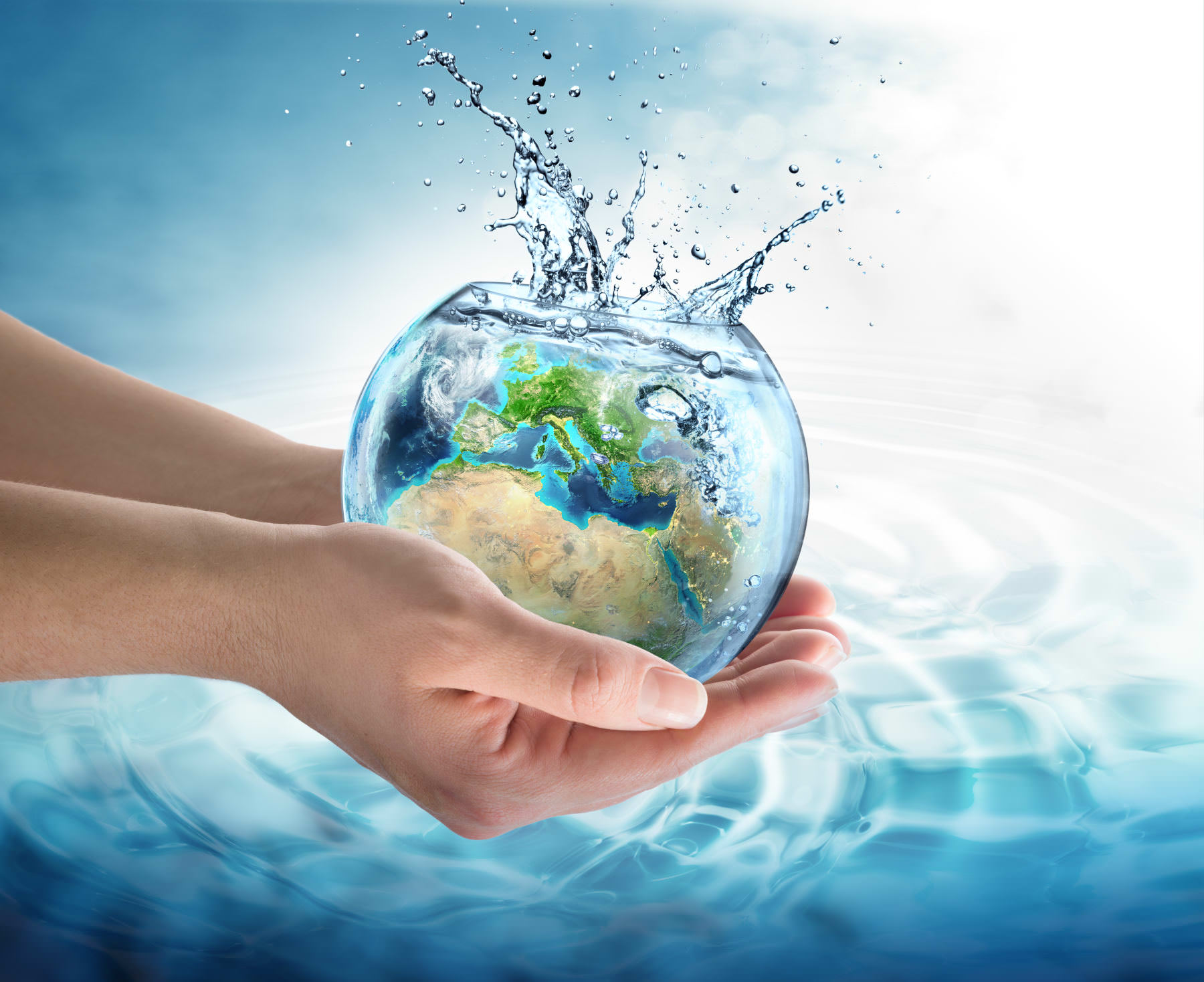Access to water is a major issue in the 21st century, with an increase in needs, a deterioration in the quality of water in rivers and lakes, as well as in groundwater. Precipitation is becoming increasingly unpredictable, with longer and more pronounced droughts.
Managing this precious resource requires a strong commitment from political leaders, but also a collective effort by all, consumers as well as businesses, in which professionals in the cosmetics sector must participate. Sophim contributes, at its level, to the preservation of our water resources.
Water, a resource under pressure
The pollution of groundwater, lakes and rivers is the biggest threat to water resources. Many countries do not have the regulations or the technical and financial means to capture and treat wastewater, or to reduce the environmental impact of industries or activities that could lead to groundwater pollution.
According to a UN report published in 2017, more than two billion people in the world lack access to safe drinking water and sanitation. Access to water is also subject to great disparities from one region to another: African populations are currently the most affected by difficulties in accessing quality water.
Climate change will put even more pressure on water resources in the coming years and decades. Some countries in high latitudes may receive more water, but other regions will experience increasingly devastating droughts. The creation of new reservoirs cannot be the only solution, and more virtuous and economical practices will have to be adopted by all.
Beyond the agreements and actions decided at the international or national level, we can all act, at our level, to preserve this vital yet threatened resource.
Cosmetics, a lever to preserve water resources
The cosmetics sector has a real impact on water resources:
- Production or extraction of raw materials
- Transformation and production process
- Presence in the final formulation
- Water consumed in the use of cosmetic products
- Discharge into the environment after use
Water is essential to the cosmetics sector. But consumption and pressure on resources can be optimised throughout the value chain.
As an engaged and responsible player in the cosmetics sector, Sophim is committed to respecting and preserving, through its choices and production methods, water that is increasingly precious and becoming less abundant.
Natural ingredients, respectful of water resources
Sophim has made strong commitments to reduce its environmental impact and preserve water resources from the production of raw materials for the cosmetics industry.
Crops adapted to the soil and climate
Water pressure can be exacerbated by crops that are not adapted to the soil and climate, and the use of intensive irrigation.
As a specialist in plant-based oleochemicals, Sophim chose to set up in Spain to be as close as possible to the olive trees. In this southern European country, olive growing is based on a know-how that is thousands of years old: the trees are used to a Mediterranean climate and exert a moderate pressure on water resources. The majority of olive groves are still irrigated with rainwater.
Olive groves, like vineyards, also play a protective role against fires that occur in periods of drought. Olive trees are a precious auxiliary in the fight against pine and scrubland fires and can help reduce the areas ravaged by flames and exposed to erosion phenomena linked to storms as soon as autumn returns.
Organic farming to preserve the water table
The impact of agriculture on water resources can be indirect. The phytosanitary products used in intensive agriculture end up infiltrating the soil and reaching the water table, which can compromise aquifer resources. By favouring natural ingredients produced as part of sustainable or organic farming, a cosmetics professional can also contribute to a better preservation of the quality of our water resources.
Sophim has concluded partnerships with trusted producers. We also offer a whole range of cosmetic ingredients and vegetable oils with the COSMOS label, and organic.
Upcycling to further reduce agricultural pressure
What if the best way to reduce water consumption in agriculture was to use all that a crop has to offer? Preserving water resources also means exploiting all the elements provided by plants, thanks to upcycling.
At Sophim, for example, we have chosen a squalane of vegetable origin, largely derived from co-products of the food industry. We recover co-products from the production of olive oil, a raw material that has no other outlet, and we give it a second life by producing a quality squalane, which is used in cosmetic products marketed throughout the world. Upcycling makes it possible to limit the use of crops exclusively for the cosmetics industry, and thus contributes to the preservation of water resources.
Water-efficient cosmetic products
The manufacturing process of cosmetic ingredients can also require a considerable amount of water, which is “hidden” and therefore invisible to the end consumer.
Oleochemistry, a water-saving process
The transformation of raw materials into cosmetic ingredients also consumes water. The petrochemical industries, which supply certain cosmetic ingredients, are, for example, major consumers of water, and can be the source of soil pollution that reaches aquifer resources, lakes and rivers.
Sophim, a specialist in oleochemistry, uses a reduced amount of water in the manufacturing processes of its various cosmetic ingredients. Our production processes are particularly reliable and present very limited risks for the environment.
Products designed to reduce water consumption
Consideration is also being given to the water footprint of the end consumer, who uses cosmetic products at home. Products that are easier to rinse off, for example, or cosmetics that no longer require rinsing, can reduce water consumption. Work on sensoriality can also contribute to a reduction in water consumption, as the consumer does not feel the need to rinse to get rid of an unpleasant sensation.
This positive impact is further enhanced by technological innovations, with the development of showerheads or taps that reduce the flow of water without affecting comfort. L’Oréal, for example, in collaboration with the company Gjosa, has developed new equipment for professionals that reduces water consumption for washing hair from 8 litres per minute to just 1.5 litres per minute.
Solid cosmetics, a solution for the future
Many cosmetic products are composed mainly of water. A shampoo, for example, can contain up to 80% water. In addition to the pressure on resources, the presence of large quantities of water has significant environmental impacts. Water-rich products are heavier and bulkier, which means that more energy is needed to produce the packaging and ensure logistics.
The ingredients proposed by Sophim can be used in solid cosmetic formulas. We have explored and demonstrated this possibility with the formulation of My Softness Journey, a solid stick for intense hydration of the body and face. This formulation features Phytosqualan and Biophytosebum, two ingredients that protect and restore the skin’s lipid barrier.
Biodegradable cosmetics
Everything we consume, if we are not careful, is likely to end up in our rivers and oceans, or to seep into our soils and reach the phreatic zone below the water table. The use of natural, healthy and biodegradable cosmetic products contributes to a better protection of our waterways and aquifer resources.
Sophim is a world-renowned innovator in the production of plant-based squalane and is an ECOCERT certified company and signatory to the Responsible Care charter. We are sensitive to the design of cosmetic ingredients that respect the environment and offer excellent biodegradability.

Commit yourself to more responsible cosmetics
Sophim is a producer of cosmetic ingredients of natural origin:
- Emollients: PHYTOSQUALAN, INSAPOLIVE, BIOPHYTOSEBUM, etc.;
- Texturing agents: natural alternatives to petroleum jelly,, natural waxes, vegetable cosmetic butter, etc.;
- Vegetable oils: argan, jojoba, castor, coconut, sweet almond, olive, etc.
Adopted by major cosmetic brands in Europe and around the world, our cosmetic ingredients reflect our environmental concerns.
Do you have any questions about our products and their use in your formulations? You can get in touch with your usual contact yourself in Sophim, contact us by telephone on (+33)4 92 33 17 17 or send us a message.
Category: Cosmetics Expertise






